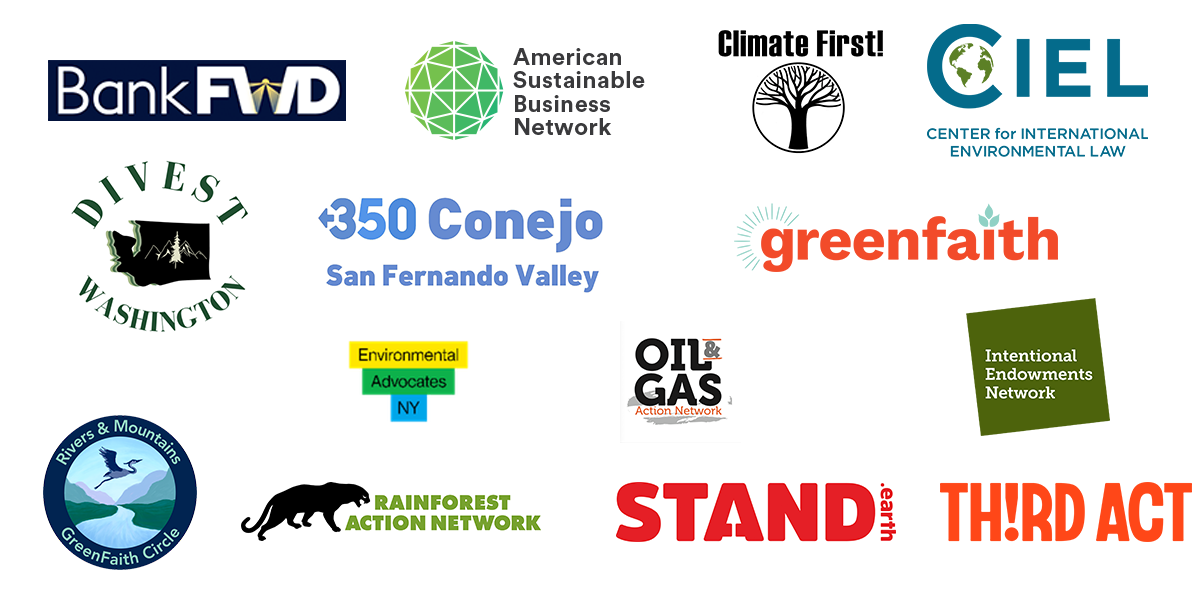
Large insurance companies are insuring fossil fuel projects and investing in oil, gas, and coal, while refusing to cover the cost of climate damage.
State-By-State Directory
Green America’s Climate Smart Insurance Directory provides alternatives to the mega-insurance companies that are underwriting and investing in fossil fuels.

How it works
This directory contains a list of local and regional home and auto insurance companies in each state. While you still need to shop for insurance in your area, this directory will give you suggestions for which companies to call directly or ask local independent insurance agents to obtain quotes from. We encourage you to call three local agents, as each agent works with different companies.
For each state, we list insurance companies that:
- Have both home and auto insurance (with a very few exceptions), so you can save by bundling the two together. Please note that most companies offering homeowners insurance also offer renter's insurance.
- Do not insure fossil fuel projects that we know of (this information is not always available).
- Have no indication of direct investments in the fossil fuel industry (Grade A), have investments under $200 million (Grade B), or investments under $500 million (Grade C), as listed in the Investing in Climate Chaos database by Urgewald, a German environmental and human rights NGO.
- Have a rating of A- or above for financial stability from AM Best.
This directory is an evolving list. If you find a great insurance company that does not insure fossil fuel projects and has little to no fossil fuel investments, and it's not in our directory, please let us know!
Why this directory?
In 2023, the United States experienced a record number of weather- and climate-related disasters that each caused $1 billion or more in damages: 28 severe storms, floods, wildfires, winter storms, hurricanes, and droughts, according to the National Oceanic and Atmospheric Administration (NOAA).
The insurance industry stands on the front lines of this climate crisis. Every time a climate-related fire, flood, or storm damages or destroys an insured person’s home or business, they expect their insurance policy to help foot the bill for repairs and rebuilding. Unfortunately, as climate events become more common, major insurance companies have begun to cancel or restrict coverage in climate-vulnerable states.
Meanwhile, property insurance prices are rising for everyone, whether or not they live in an area with heightened climate-related risk. Homeowners insurance premiums are now up 21% from a year ago and 35% from two years ago nationwide, according to the 2023 Policygenius Home Insurance Pricing report.
Insuring and investing in fossil fuels
Shockingly, despite clearly increased climate risks, the nation’s major insurance companies continue to support the chief cause of the climate crisis: the burning of fossil fuels. They do this in two ways: by insuring risky fossil fuel projects, and by investing billions of dollars in fossil fuel companies.
For example, eight Gulf South LNG terminals, each the carbon bomb equivalent of dozens of coal plants, are insured by Liberty Mutual, AIG, Chubb, The Hartford, Travelers, Lloyd's of London, and more.
Here is a list of fossil fuel investments for nine major U.S. insurance companies:
| Insurance Company | Total Fossil Fuel Investments |
| Berkshire Hathaway (parent of GEICO) | $95.8 billion |
| State Farm | $20.6 billion |
| USAA (through Victory Capital) | $11.2 billion |
| AIG | $9.7 billion |
| Nationwide | $7.2 billion |
| Allstate | $4.5 billion |
| Travelers | $1.9 billion |
| Liberty Mutual | $1.8 billion |
| The Hartford | $1.3 billion |
For Green Americans who want to move their money from a megabank that disproportionately finances fossil fuels, there are several directories to help them find a better bank, including our own Get A Better Bank map. But there was no such directory to help people find climate-friendly insurance -- until now.
Endorsements
The Climate Smart Insurance Directory is endorsed by the following organizations:

Credits
A huge thank you to our insurance directory researcher Mike Moore, who combed through insurance company finances and reports to put together the data in this directory. Thank you to Michael Richardson of Third Act Upstate New York and Rivers & Mountains GreenFaith, which provided half the funding for this directory. And thanks to Alec Badalov on the Green America communications staff who created this page and the State-by-State Directory widget. This project would not be possible without all of you.






